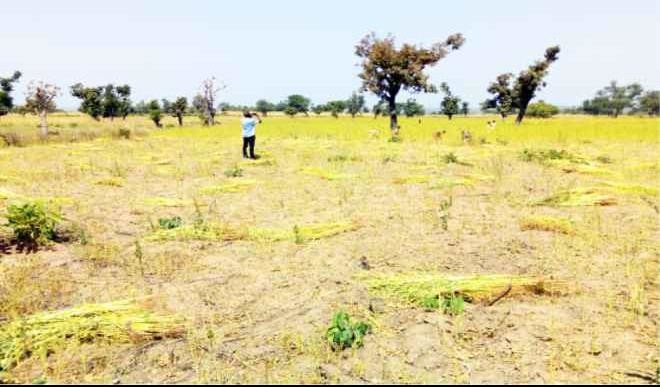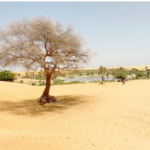The Director-General of the National Conservation Foundation (NCF), Dr. Muhtari Aminu-Kano, has called for a multi-faith intervention towards achieving alternative paradigm in reducing the impact of climate change and other environmental challenges in Nigeria.
To achieve this alternative paradigm, he sighted moderation in human consumption pattern, environmental stewardship as well as having ethical boundaries and contentment in human approaches to money and market while considering a holistic wellbeing as part of the framework for the new paradigm.
He stated this during the Interfaith ‘Rise for Climate’ event organized by the NCF in collaboration with civil society groups such as Green Faith held at LUFASI Nature Park in Lagos.
The event was held to galvanize action with other global marches and activities including the Bangkok March to call-to-action national, sub-national leaders, government, private sector, faith-based institutions, and other stakeholders etc as world leaders meet for the Global Climate Action Summit in San Francisco.
In his keynote address, the Director General shared insights on Islamic principles and approaches to protect the environment as defined in Eco-Islam, a movement pioneered by Islamic Foundation for Ecology and Environmental Studies (IFEES).
He emphasized on four Islamic principles which are the foundation for the inter-link between environmental protection and Islam belief – Tauhid (Unity); Fitra (Creation); Mizan (Balance); and Khalifa (Stewardship).
Aminu-Kano explained further that Hima (Sustainable management); Harim (protection); Waqf (Trust Fund); and Hisba (Enforcement) are the approaches or mechanisms that Muslim societies have employed to observe and implement the tenets of these four principles.

While giving examples of Muslim initiatives in existence that have proven very successful in environmental protection, he highlighted Eco-Islam; Islamic Declaration on Climate Change; Green Muslim Climate Network, Green fatwas; Green mosques; Green Hajj; Green iftar; and Green khutbah etc.
Other speakers included representatives from the Christian faith and Buddhist community in Lagos who also shared their insights about environmental protection.
In order to continue the conversation around engaging inter-faith in driving climate action, Dr. Aminu-Kano used the event to announce NCF’s plan to host a public lecture and engage with faith leaders towards a strong campaign to save the Nigerian environment. He said this will be launched in 2019.
A joint interfaith declaration was made with seven key points as action for faith-based institutions. They were based on public environmental awareness, engagement with faith-based governance structure, mainstreaming environment into theological doctrines and curriculum, and commitment to divest from fossil-fuel to renewable energy-powered worship centres.

 Join Daily Trust WhatsApp Community For Quick Access To News and Happenings Around You.
Join Daily Trust WhatsApp Community For Quick Access To News and Happenings Around You.


